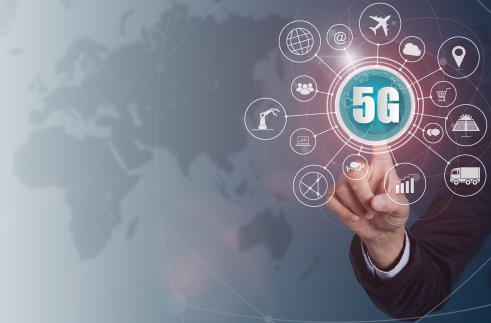How 5G can promote the development of smart cities


Global examples of how smart cities leverage technology are growing. But with all these innovative applications, potential bottlenecks can slow down operations, impair the ability to scale solutions, and hinder the development of smart city ecosystems.
5G brings the capabilities required for smart city connectivity, enabling the use of sensors, data, analytics and more. This enables the use of sensors, data, analytics, etc. 5G is essential for the evolution of urban spaces into sustainable, resilient and efficient entities, and 5G is the key to the future of smart cities.
Why choose 5G
It is estimated that by 2025, the number of active IoT connections in EU smart cities alone is expected to double, and the global IoT market size for smart cities is expected to grow by 18.8% overall. This ability to connect a range of urban activities, from transportation to energy to waste collection data, to improve services, quality of life and environmental impact is the intelligence of smart cities. But the only way to actually support the number of devices and sensors needed to enable this quality of life and service is through 5G.
An emerging global wireless standard, 5G enables a new type of network designed to connect nearly everyone and everything, including machines, objects and devices, all at exponentially faster speeds than current networks .
4G connects an average of 2,000 devices per square kilometer, while 5G connects 1 million devices per square kilometer. 5G also boasts faster speeds, lower latency and better reliability.
The higher performance and greater efficiency of 5G can enhance user experience and connectivity that are integral to the smart city vision. It also allows for enhanced end-to-end security, which is critical not only to protect city infrastructure and operations from cyber-attacks, but also to protect citizens' personal data and privacy.
5G can facilitate urban transformation in several key ways. it can:
● Enhanced services and infrastructure for citizens: Aging infrastructure needs to be restarted, and adding connectivity to services can make it run at a lower cost, increase efficiency, and tailor it to citizens' needs.
● Improving operations and improving security: Government-run outlets such as ports and warehouses are adopting Industry 4.0 use cases, and 5G allows them to improve operations and security.
● Bridging the digital divide: Ubiquitous connectivity is becoming a utility, and many citizens lack the necessary access. Without adequate connectivity, they cannot conduct activities such as distance learning, doctor visits and working from home.
Governments are already driving productivity and efficiency gains at lower cost through 5G innovations. Cities are leveraging 5G and edge computing for functions such as crowd control and infrastructure monitoring.
The 5G standalone architecture could also connect vehicles from tugboats to trains. Cities can incorporate real-time asset tracking and autonomous robots that can virtually verify and inspect inventory and supplies.
How 5G can promote the development of smart cities
根据一份对全球600多名政府官员和基础设施高管的调查发现,数字投资可能是未来三年各国政府的首要任务之一,70%的受访者预计将转向数字基础设施投资,这是对智慧城市的推动。
但智慧城市转型可能是一项艰巨的任务,而正确的5G基础设施将是成功的关键。也就是说,5G战略不应该在真空中制定,而应该作为智慧城市规划的一个组成部分。
城市可以采取的一些步骤来指导其5G战略,包括:
● 构思和优先次序:利用智慧城市计划,选择需要通过5G改善的领域,理想化、识别和优先化顶级机会。这可能包括智能交通系统、医疗保健和医疗运输或安全等等。
● 开发业务案例:制定5G的运营优势及其相关业务案例价值主张,包括获取客户/公民体验、更高效的服务和更低的能源消耗等。
● 设计技术和安全需求:作为大型智能城市架构的一部分,定义和设计5G机会的技术解决方案架构和要求,同时考虑部署策略和应用需求。
● 构建和评估:从一个可以根据业务用例进行监视和评估的试点开始,然后改进并进行更大规模的推广。城市还应确定和利用最佳实践,并制定路线图和实施计划,包括时间表和问责制以保持正轨。
● 运营和维护:定义整体治理、运营模式和流程,以确保5G的可持续性。这包括确保和确定资金的投放时间和地点,以及建立适当的控制措施以减少欺诈、浪费和滥用。
城市的作用
公共部门和智慧城市在实现5G潜力方面发挥着独特的作用,在5G监管、数据隐私和道德、包容性和资金等方面发挥领导作用。在技术和5G应用方面,城市正在推动很多创新,并进行真正的测试。它们不仅为私营部门提供扩大其努力的机会,而且经常为此提供资金。
通过建立这些生态系统,智慧城市为整个城市景观的可持续解决方案铺平了道路,5G可以将智慧城市提升到一个新的水平。